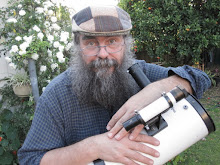Tuesday, March 19, 2024
Thursday March 21 to Thursday March 28
The Full Moon is Monday March 25. There is a very disappointing penumbra eclipse at this time (low in the evening twilight). Jupiter is low in the north-western twilight sky and sets around half an hour after the sky is fully dark. Jupiter and Uranus are within binocular distance of each other by the end of the week. Venus is visible in the morning twilight below Mars. Saturn is close to Venus and is closest on the 22nd.
The Full Moon is Monday March 25. There is a very disappointing penumbral lunar eclipse at this time, where the outer part of earth’s shadow brushes against the Moon, resulting in a subtle darkening of the Moon. sadly, most of the eclipse takes place before the moon rises into the very early evening twilight, so will be nearly impossible to see. The Moon is at apogee, when it is furthest from Earth, on the 24th.
Evening sky on Saturday, March 23 as seen from Adelaide at 20:17 ACDST (60 minutes after sunset). Jupiter is low above the north-western horizon and coming closer to Uranus. The inset is the telescopic view at this time.
Similar views will be seen from the rest of Australia at the equivalent local time (60 minutes after sunset).
Evening sky on Thursday, March 28 as seen from Adelaide at 20:06 ACDST (60 minutes after sunset). Jupiter is low above the north-western horizon and within binocular distance of Uranus. The inset is the binocular view of the pair at this time.
Similar views will be seen from the rest of Australia at the equivalent local time (60 minutes after sunset).
Elsewhere in Australia will see a similar view at the equivalent time (90 minutes after sunset).
Mercury is lost in the twilight.
Venus is in the morning twilight, it is sinking towards the horizon but will remain visible for all of March. Mars and Venus draw further apart. On the 22nd Venus is below Mars and at its closest to Saturn.After this Saturn Pulls away and heads towards Mars.
Mars is rising in the morning twilight and moving away from Venus.
Jupiter is visible low in the early evening twilight sky. It is coming closer to Uranus and is within binocular distance of Uranus.
Saturn returns to the morning twilight. On the 22nd Venus is closest to Saturn.
Star Map via Virtual sky. Use your mouse to scroll around and press 8 when your pointer is in the map to set to the current time.
Cloud cover predictions can be found at SkippySky.
Here is the near-real time satellite view of the clouds (day and night) http://satview.bom.gov.au/
Labels: weekly sky







 Click to read about or order
Click to read about or order Click to read about or order
Click to read about or order Click to read about or order
Click to read about or order Click to read about or order
Click to read about or order




